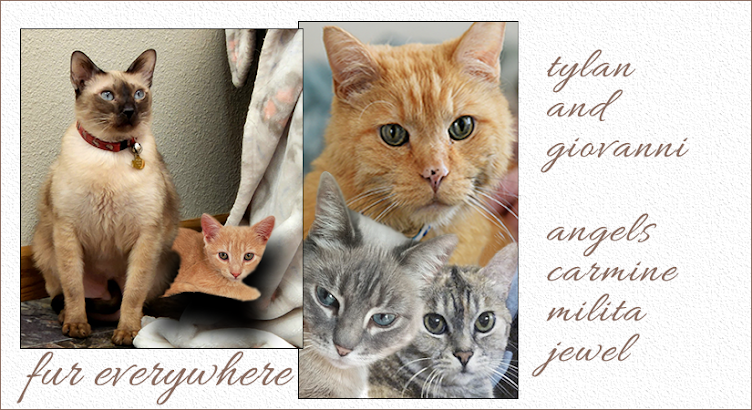 1. Post Numbers on the Fridge: Post the ASPCA's Poison Control and your nearest after-hours vet on your fridge. It's also a good idea to program these numbers into your cell phone if you have one.
1. Post Numbers on the Fridge: Post the ASPCA's Poison Control and your nearest after-hours vet on your fridge. It's also a good idea to program these numbers into your cell phone if you have one.Open 24-hours a day, 365 days a year, the ASPCA is a fantastic resource if you think your pet has eaten or ingested something toxic. Their number is: 888-426-4435. There is a $65 consultation fee.
To find a local after-hour vet clinic or hospital, do an Internet search, and call the vet to ensure they're still open. I've found that the Internet sometimes lists businesses that no longer exist. You don't want to go to the address of an after-hours vet clinic only to find out they are no longer there! Alternatively, ask your vet for an after-hours clinic recommendation.
2. Have Enough Accessible Carriers: If you have to evacuate your home for any reason, you'll want to have a carrier for each of your cats in an easily accessed place, such as near your door.
3. Have a First Aid Kit: Caring for Your Aging Cat by Janice Borzendowski suggests making a first aid kit for your cat or dog. She asserts it should include the following items:
- Gauze pads and medical paper tape.
- Rolled cotton and cotton balls.
- Tweezers, scissors, and nail clippers.
- Muzzle to prevent biting.
- Pillowcases or towels (to wrap kitty up in for treatment).
- Latex gloves.
- Ear cleaning solution.
- Sterile saline solution.
- Wet wipes.
- Syringe and plastic eye dropper.
- Hydrogen peroxide.
- Nonstick bandages.
- Ice pack.
- Rectal thermometer.
 4. Learn Basic First-Aid: It's important to learn basic first-aid procedures so that you can care for your pet until you reach your local animal hospital for further treatment. Organizations like the American Red Cross offer pet first aid classes for the public. You could also ask your vet to teach you how to do basic first aid and CPR.
4. Learn Basic First-Aid: It's important to learn basic first-aid procedures so that you can care for your pet until you reach your local animal hospital for further treatment. Organizations like the American Red Cross offer pet first aid classes for the public. You could also ask your vet to teach you how to do basic first aid and CPR.
5. Keep Medical Files: Make a medical file for each of your cats, and keep it somewhere easily accessible in an emergency. Keep vaccination records, test results, and medication lists (including dosages) in the file. When your usual vet isn't open, the vet treating your cat will need to know this information to help you make the best care decisions for your pet.
6. When You're Traveling: Make sure your pet sitter, close family, and friends - anyone who takes care of your cat regularly - has a copy your kitty's medical file, veterinary contact information, and the ASPCA Poison Control number. Ensure that your pet sitter also has the contact information of a close family member or friend whom you trust to make medical decisions for your pet if you cannot be reached.

Well, my human falls short on a number of these (at least we have enough carriers) - I need to get her butt in gear!
ReplyDeleteMum is a total zero, a cat-a-stroph ! I asked her to evernote your post ! Purrs
ReplyDeleteThat is really a great list! Get busy everyone!
ReplyDeletethanx fora grate ree minder guys....lotz oh peepulz due knot think bout thiz stuff til de emergencee haz all reddy happened....
ReplyDeletethat's my phone, the Nokia N8 - not many people know about that phone!
ReplyDeletebeing prepared is always good. I'm happy to live next door to 24-hour vet, emergency care is just a few steps away.
Wow, this is really good, detailed advice! Thanks for posting it, we'll have to get busy!
ReplyDeletejust tweeted this, pinned it and shared on Cody's fan page. I had to use the ASPCA Poison control number myself about a month ago (keep meaning to blog about it, but haven't), this is important info!!!! Thank you for writing this!
ReplyDeleteGreat post -- it's really important to be prepared!
ReplyDeleteYou have some excellent ideas here. Our Mumsy even Instapaper do your article so we can do more follow up on your suggestions. Thank you, guys!
ReplyDeleteLike Sparkle, my human is a bit deficient! Thanks for the timely word xx
ReplyDeleteWhat a great list, thanks for the info.
ReplyDeleteNoodle
Thanks for this reminder as we head into holiday season.
ReplyDeletePawsome Info !
ReplyDeleteMy mom makes note :)